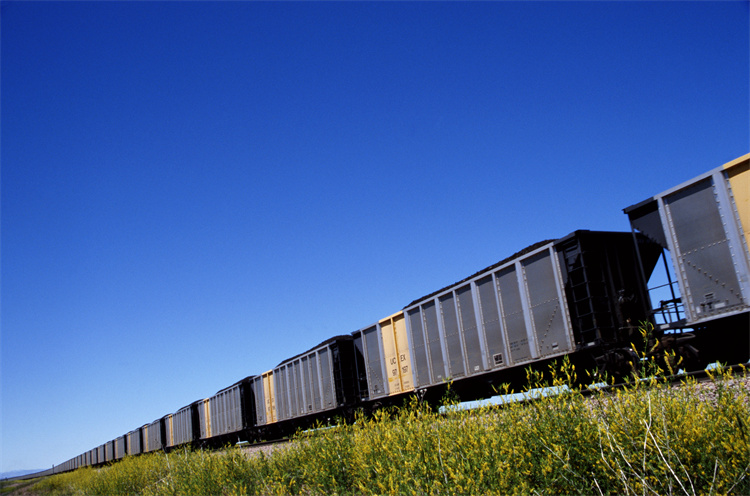Leveraging the Environmental Advantages of JUSDA's Rail Transport Services

JUSDA has pioneered innovative rail transport services, connecting major regions across Eurasia. Sustainable transportation solutions have become crucial in addressing environmental concerns. The logistics industry faces significant challenges due to high greenhouse gas emissions and substantial energy consumption. Rail transport offers a promising alternative by reducing carbon emissions and enhancing energy efficiency. JUSDA's commitment to leveraging the environmental advantages of rail transport can lead to a more sustainable future.
Environmental Advantages of Rail Transport
Reduced Carbon Emissions
Comparison with Road and Air Transport
Rail transport offers significant environmental advantages over road and air transport. Trains emit around 35 grams of carbon dioxide per kilometer, which is substantially lower than emissions from road vehicles. Rail transport produces one-seventh of the greenhouse gases compared to trucking. Air transport, known for high carbon emissions, falls short in comparison to rail. The logistics industry can achieve considerable emission reductions by opting for rail over road or air.
Statistics on Emission Reductions
Statistics highlight the environmental advantages of rail transport. Road users contribute to 71% of transportation-related carbon emissions, whereas rail travel accounts for only 1.8%. Trains are responsible for far fewer emissions than cars. Rail infrastructure adds an additional 141% of greenhouse gas emissions over those from passenger traffic. These figures underscore the potential for rail transport to significantly reduce the carbon footprint of logistics operations.
Energy Efficiency
Fuel Consumption Comparisons
Rail transport stands out for its energy efficiency. On a ton-mile basis, rail is three to four times more fuel-efficient than trucks. Union Pacific, for example, can move one ton of freight 444 miles on a single gallon of diesel fuel. This efficiency results in a carbon footprint up to 75% less than that of trucks. Rail transport consumes six times less energy compared to other transportation methods, making it a sustainable choice for the environment.
Technological Advancements in Rail Transport
Technological advancements further enhance the environmental advantages of rail transport. Innovations in locomotive design and fuel efficiency contribute to reduced energy consumption. The integration of real-time monitoring systems ensures optimal performance and minimizes waste. These technological improvements bolster the sustainability of rail transport and align with global environmental goals.
Lower Noise Pollution
Impact on Urban Areas
Rail transport also offers environmental advantages in terms of noise pollution. Trains generate significantly less noise compared to road traffic, especially in urban areas. Lower noise levels contribute to improved quality of life for residents and reduce the impact on local wildlife. Urban planners increasingly recognize the benefits of rail transport in mitigating noise pollution.
Case Studies of Noise Reduction
Case studies illustrate the effectiveness of rail transport in reducing noise pollution. Cities that have invested in rail infrastructure report noticeable declines in noise levels. For instance, the implementation of rail systems in certain urban areas has led to a marked reduction in noise complaints. These examples demonstrate the potential for rail transport to create quieter, more livable urban environments.
JUSDA's Commitment to Sustainability
Green Initiatives
Investment in Eco-friendly Technologies
JUSDA prioritizes investments in eco-friendly technologies. The company integrates advanced locomotive designs that enhance fuel efficiency. Real-time monitoring systems optimize performance and minimize waste. These technological advancements align with global sustainability goals. JUSDA's commitment to green technology underscores its dedication to reducing environmental impact.
Partnerships with Environmental Organizations
JUSDA collaborates with leading environmental organizations. These partnerships drive initiatives that promote sustainable logistics practices. Joint efforts focus on reducing carbon emissions and enhancing energy efficiency. Collaborations with environmental groups strengthen JUSDA's commitment to sustainability. These alliances foster innovation in eco-friendly transportation solutions.
Sustainable Practices in Operations
Efficient Route Planning
JUSDA employs efficient route planning to minimize environmental impact. Advanced algorithms optimize transport routes, reducing unnecessary travel. Efficient route planning lowers fuel consumption and decreases carbon emissions. This practice enhances the overall sustainability of JUSDA's logistics operations. Route optimization contributes significantly to environmental conservation.
Use of Renewable Energy Sources
JUSDA incorporates renewable energy sources into its operations. Solar panels and wind turbines power various facilities. The use of renewable energy reduces reliance on fossil fuels. This shift to green energy sources aligns with JUSDA's sustainability objectives. Renewable energy integration demonstrates JUSDA's proactive approach to environmental stewardship.
Real-world Examples and Case Studies

Successful Implementation of Rail Transport
Case Study 1: Company A's Experience
Company A leveraged JUSDA's rail transport services to optimize its supply chain. The company faced challenges with high transportation costs and delays using traditional road transport. By switching to rail, Company A reduced transportation time by 30%. This shift improved supply chain efficiency and resulted in significant cost savings. The integration of JUSDA's rail services also contributed to a lower carbon footprint for Company A. The company's commitment to sustainable practices aligned well with the environmental advantages of rail transport.
Case Study 2: Company B's Experience
Company B utilized JUSDA's innovative Sea-Rail Transport mode for shipments from Southeast Asia to Europe. This multimodal approach combined sea and rail transport, reducing overall transportation time by 40%. The seamless integration of these modes enhanced supply chain reliability and efficiency. Company B experienced a notable decrease in greenhouse gas emissions due to the energy-efficient nature of rail transport. The company's strategic decision to adopt JUSDA's services highlighted the environmental advantages and operational benefits of rail transport.
Long-term Environmental Impact
Data on Environmental Improvements
JUSDA's rail transport services have demonstrated substantial environmental improvements. Data shows a significant reduction in carbon emissions compared to traditional road and air transport. Rail transport produces one-seventh of the greenhouse gases compared to trucking. This reduction aligns with global sustainability goals and showcases the environmental advantages of rail transport. The adoption of rail services by various companies has collectively contributed to a cleaner environment.
Future Projections and Goals
Future projections indicate continued growth in the adoption of rail transport. JUSDA aims to expand its rail services to cover more regions and integrate advanced technologies. These efforts will further enhance the environmental advantages of rail transport. The company plans to invest in eco-friendly technologies and renewable energy sources. These initiatives will support long-term sustainability goals and reduce the logistics industry's environmental impact. JUSDA's commitment to innovation and sustainability positions it as a leader in environmentally friendly transportation solutions.

JUSDA Solutions
To provide you with professional solutions and quotations.
JUSDA's rail transport services offer significant environmental advantages. Rail transport reduces carbon emissions and enhances energy efficiency. Rail transport also lowers noise pollution in urban areas. Sustainable transportation options are essential for addressing environmental challenges in the logistics industry.
Businesses should consider rail transport for their logistics needs. Rail transport provides a reliable and eco-friendly alternative to traditional road and air transport. JUSDA's commitment to sustainability and innovation makes rail transport a viable option for companies aiming to reduce their environmental impact.
See Also
Streamlined Eco-Friendliness: JUSDA's Logistics Expansion Revealed
The Transformation of Supply Chain Sustainability by JUSDA
Enhanced Logistics Efficiency: JUSDA's Optimization Redefined
The Revolutionary Impact of JUSDA's Sustainable Development Efforts
The Superiority of JUSDA's Industry-Leading Supply Chain Solutions
